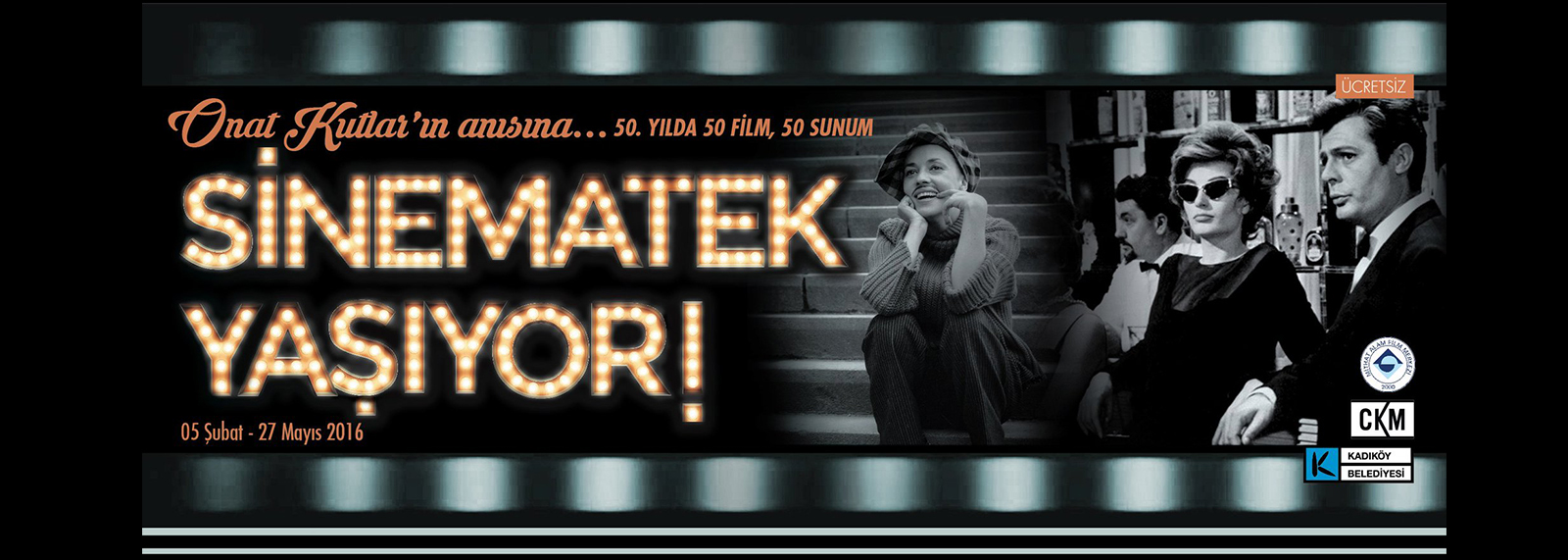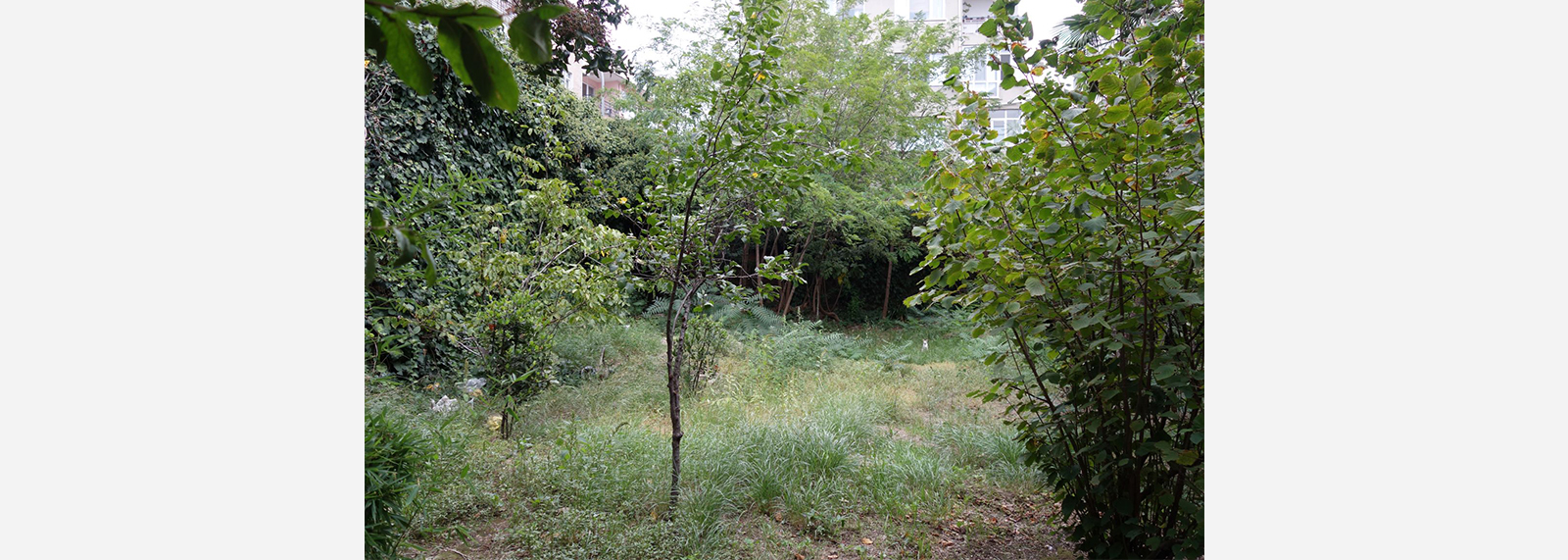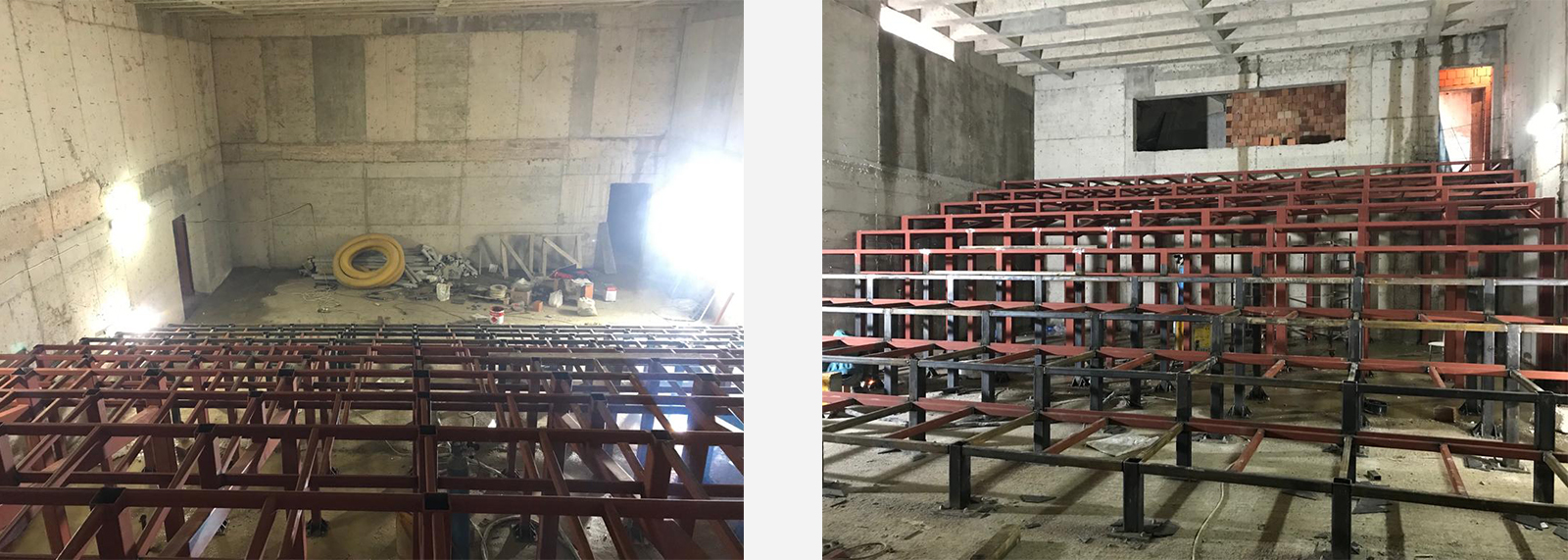How did the New Sinematek/Cinema House Emerge?
.jpeg) On the night of June 17, 2013, a bunch of friends who are the former employees of the Turkish Cinematheque Association and who remained deeply committed to it despite the passing of time; Hülya and Ali Uçansu, Vecdi Sayar, Sungu Çapan, Mete Akalın, Mustafa Göçmen and Mustafa Altıntaş, we have come together. Before parting, I showed my friends an empty letterhead signed and handed to me by Onat Kutlar 48 years ago. In memoriam Onat Kutlar, we signed the paper writing “Still together after 48 years” and headed home “hoping to be together again 2 years later”.
On the night of June 17, 2013, a bunch of friends who are the former employees of the Turkish Cinematheque Association and who remained deeply committed to it despite the passing of time; Hülya and Ali Uçansu, Vecdi Sayar, Sungu Çapan, Mete Akalın, Mustafa Göçmen and Mustafa Altıntaş, we have come together. Before parting, I showed my friends an empty letterhead signed and handed to me by Onat Kutlar 48 years ago. In memoriam Onat Kutlar, we signed the paper writing “Still together after 48 years” and headed home “hoping to be together again 2 years later”.
A little while later, I started thinking over the idea of a 50th anniversary. After all, 2015 also marked the 20th anniversary of losing beloved Onat Kutlar in a bomb attack. Weren’t we to commemorate Onat Kutlar, Hüseyin Baş, Şakir Eczacıbaşı and friends who have given Turkey an enlightenment movement like the Turkish Cinematheque Association and sustained it for 15 years? Weren’t we going to organize such an event?
“Two years ago, on the 20th anniversary of Onat Kutlar’s demise, I went to İKSV (Istanbul Foundation for Culture and Arts) and told them that it would be appropriate to commemorate our friend with an event. A panel was organized in Istanbul Modern where one of Onat’s favorite films, Visconti’s Il Gattopardo was screened (1).
I suggested we do not leave it there and on the occasion of 50th anniversary of Sinematek’s foundation, continue with a 50 film anthology, each film to be presented by Turkey’s leading scholars, artists, journalists, critics and directors (…) and I took the project “Sinematek Lives On! 50 Films and 50 Presentations in the 50th year” to Kadıköy Municipality where it was instantly accepted without any dispute (2). It was agreed to be carried out in Caddebostan Cultural Center. Likewise, Boğaziçi University Mithat Alam Film Center started the event, thanks to Mithat Alam, a reputable cinephile who has recently passed away. In the second part of the event, Pera Museum joined us. Thus we succeeded to show important films of movie history to 500 film lovers a week, each film to be shown only once and free of charge (3)."

Presentations were made prior to screenings and each one lasted about 20 minutes. Screenings were followed by question and answer sessions when the duration of the film allowed. We had considered that a historian presenting Il Gattopardo, a psychiatrist presenting Hitchcock’s Vertigo, a criminologist presenting Kurosawa’s Rashomon would not only contribute to the field of cinema but also to the environment of discussion in general and it turned out that we were not wrong (4) (5).
The screenings ended in mid-January 2017. Audience as well as the three organizations which made this project possible asked us what was next. The small team which worked on a voluntary basis all throughout the project couldn’t come up with an answer (…)”
(Jak Şalom, Sinematek Yaşıyor!, Psikesinema, January-February 2017, No 9, p. 43)
In an exhibition opening on a cold March morning, I met Kadıköy’s then mayor Aykurt Nuhoğlu. “Mr. Jak, next year we continue, right?” “Continue to what, Mr. Mayor?” “The film screenings!” “What has been done until now has been done with a small, voluntary team. This cannot be carried on on such a nomadic basis…” “So now what?” “The municipality has so many cultural centers. If you could dedicate one of them to this project, it could be done…” It was the only answer I could think of in the face of an unexpected question. The conversation ended with the Mayor saying “We’ll think about that…”
On May 6, 2017, at Kadıköy TESAK, I participated in an interview alongside Adnan Özyalçıner, Ayşe Emel Mesçi and Abâ Müslim Çelik on the occasion of Yılmaz Güney’s 80th birthday. Aykurt Nuhoğlu was in the audience and he said that he wanted to talk to me in case I had time after the interview. Joined by Başar Necipoğlu, we came together. The Mayor started by saying “Mr. Jak, what’s this thing called cinematheque, could you please tell us?” And for the next two and a half hours, I told them as much as I could, what a cinematheque was, what a film archive was, what they were good for, what cinema heritage was, what film culture was and why it was important to propagate it, what the world’s leading cinema organizations had and how these organizations worked.
A little while later, in June 2017, I got a call from the Kadıköy Municipality. “The Mayor would like to see you…” “I’m abroad unfortunately…” “Could we send you an e-mail?” “Of course, whenever you like…”
An e-mail dated June 30, 2017 gave the news: “You may kindly find attached our building project on block no 1430, lot no 96 near Yoğurtçu Park, Osmanağa Neighborhood which has been purchased by our municipality. Our project consists of a City Council Building in the structure of a relic, a Cinematheque Building in the glass structure and a shared café (one outdoor and one indoor) whereas there are foyer areas and a hall which can serve a multiplicity of purposes with a 200 seater telescopic tribune on the basement floor. (…) Since our project is in the preliminary design stage, you are welcome to guide the arrangement of space designations for Sinematek."
I need to read the e-mail once more! Indeed, the Kadıköy Municipality seems intent on establishing a cinematheque, furthermore doing it with a purpose-built cinematheque building. Let me have a look at the plans… There are a few things that need to be fixed… Yet is it possible not to rejoice at the news?! I shared my opinions in a rather long e-mail. We agreed to have a meeting in Istanbul on July 20, 2017.
On July 20, we had a crowded meeting. But it was a nice crowd. Whoever was needed to think through and design the project was there. Views and opposing views were discussed and the project was given its final shape (I didn’t know it was going to change multiple times in the future).
The tender was finalized on December 6, 2017. After legal reclamation period was over and drilling works were completed, the site was delivered to the contractor early February 2018.

Previously, there was a kiosk and its greenhouse on the plot, standing until 1980’s. Its surveying had been done prior to its destruction. Superior Council for the Conservation of Cultural Heritage allowed construction but on the condition that it’s in accordance with the original structure. When it’s all finished, it will look like this.
.jpg)
When the project is complete, a utopia will be realized, the utopia of a visionary mayor and a patient man who has worked with Onat Kutlar and the founding team of the Turkish Cinematheque Association and who has not ceased to be young despite his old age.

Users, cinephiles will have the last word. Let’s hope that it will be in accordance with the initial excitement.
Jak Şalom
Important dates:
17 June 2013 –Coming up with the idea of “doing something” for the 50th anniversary of the Turkish Cinematheque Association in 2015
05 February 2016 - “Sinematek Lives On!” starts in Caddebostan Cultural Center, Pera Museum and Boğaziçi University Mithat Alam Film Center
13 January 2017 – “Sinematek Lives On! 50 Films and 50 Presentations in the 50th year” ends
6 May 2017 – Aykurt Nuhoğlu and Jak Şalom meet to talk about what a cinematheque is
20 July 2017 – Meeting where the plans of the Sinematek/Cinema House are talked through
6 December 2017 – Sinematek/Cinema House tender is finalized
February 2018 – The construction site of Sinematek/Cinema House is delivered to the contractor, the construction begins
2018-2019 –Construction of Sinematek/Cinema House
(1) 09 April 2015
(2) By/thanks to Prof. Simten Gündeş, Director of Cultural and Social Affairs, Kadıköy Municipality
(3) 05 February 2016 - 13 January 2017
(4) Doğan Hızlan’s article in Hürriyet, dated 11.02.2016: http://www.hurriyet.com.tr/yazarlar/dogan-hizlan/sinematek-yeniden-hayatimizda-40052906
(5) Presenters: Ezel Akay, Müjdat Gezen, Vecdi Sayar, Mehmet Güleryüz, Ercan Kesal, Bengi Semerci, Erden Kıral, Jak Şalom, Özgür Mumcu, Tayfun Pirselimoğlu, İlber Ortaylı, Murathan Mungan, Atilla Dorsay, Yankı Yazgan, Burçak Evren, Ege Cansen, Filiz Kutlar, Cevat Çapan, Janet Barış, Sevin Okyay, Okan Ormanlı, Aslı Öngören, Deniz Türkali, Feride Çiçekoğlu, Fırat Yücel, Ali Alpar, Sema Kaygusuz, Haydar Ergülen, Oğuz Makal, Hülya Uçansu, Zafer Toprak, Zeliha Berksoy, Hakkı Başgüney, Murat Gülsoy, Genco Erkal, Mustafa Altıntaş, Fuat Erman, Emin Alper, Füruzan, Sevil Atasoy, Ahmet Kuyaş, Yazgülü Aldoğan, Özcan Alper, Nebil Özgentürk, Ahmet Ümit.